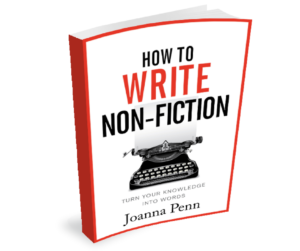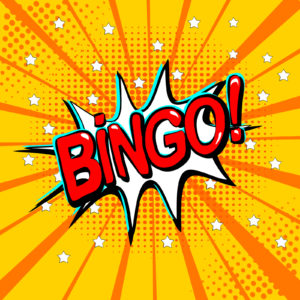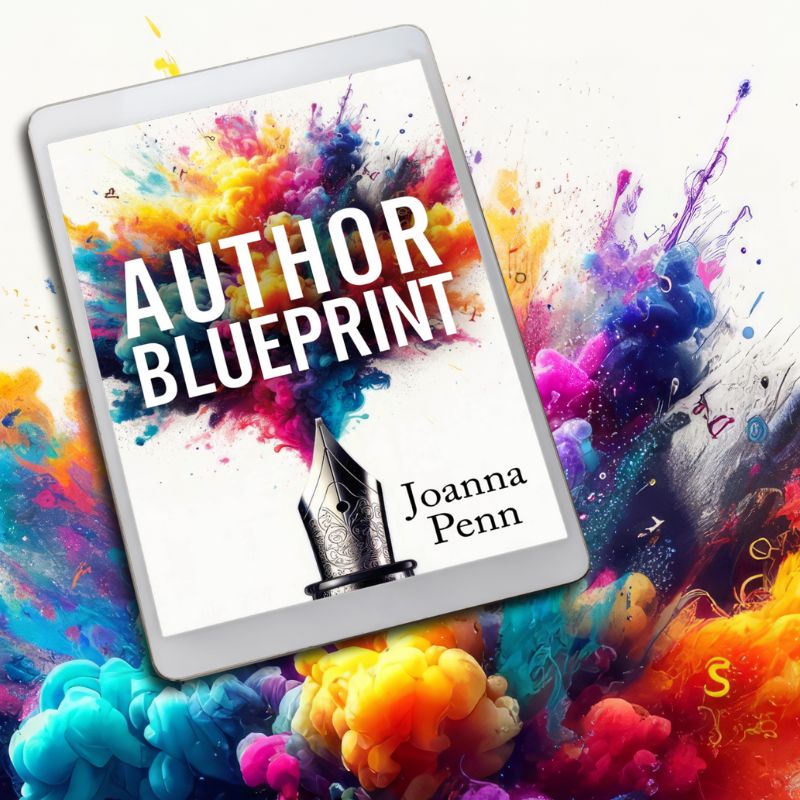One of the challenges for writing non-fiction is to get the balance right.
 You don’t want to write a dry, academic tome, but neither do you want a fluffy book of no substance.
You don’t want to write a dry, academic tome, but neither do you want a fluffy book of no substance.
You also want to feel that your writing project is a creative experience and not a painful college assignment.
So how can you turn what feels like a boring book into an engaging read?
 This is an excerpt from How to Write Non-Fiction: Turn Your Knowledge into Words by Joanna Penn. Available in ebook, print, audiobook and workbook formats.
This is an excerpt from How to Write Non-Fiction: Turn Your Knowledge into Words by Joanna Penn. Available in ebook, print, audiobook and workbook formats.
Share your story and your personal experience in your voice
“What makes non-fiction come alive for me are the personal stories and journal entries to illustrate a point. I love it when I’m reading a non-fiction book in a more conversational tone as if I’m sitting down having a cuppa with a friend and learning something along the way.” Leeza Baric, from The Creative Penn survey
If your book is boring, it’s probably because there is no story and no personality in it. You can only bring a subject alive if you make it real by sharing your story.
Talk to the reader as if they were in the room with you. Share your emotion, your heart, your passion, as well as your knowledge.
I came up against these issues when I started writing How to Write Non-Fiction. I felt bogged down in How To information and the writing was boring me and not engaging my creative side at all.
I went back through my journals and found my notes on various books and the turning points in my life that came after reading them. By sharing those memories, by tapping into that passion, I found the book again. Finishing it became a creative challenge, and I discovered a renewed eagerness for the project.
Don’t be too academic
“Don’t use big words. They mean so little.” Oscar Wilde
Don’t write like an academic unless you are writing an academic paper or thesis. And if you’re writing something like that, then it is not a book. The audience is completely different, and if you do want to turn your thesis into a book, then you need to rewrite it. You are not being assessed or graded by how intelligent you are. You are trying to educate, inspire or entertain a reader – not a professor.

Use active language and if you’re struggling with that, use a tool like Grammarly to identify passive sentence structure, which is particularly common with academic writers.
“Experts writing non-fiction are prone to putting on a posh academic overcoat. The language can be dry, technical, and passive. Work hard to make your prose accessible and tell an engaging story. Shrug off that overcoat and let your passion shine through.” Dr Euan Lawson, my co-writer for The Healthy Writer
Use quotes, images, illustrations, photos or other visuals
You don’t have to produce everything from your brain. You can use quotes or visuals that bring your book alive and demonstrate your ideas in new ways.
I like using quotes from books and also from writers who participate in my surveys as it brings in other voices, changes the tone and backs up my thoughts on the topic. I used my own diagrams in Career Change to turn the process into visuals. More evidence of my consulting background!
 You can hire people on sites like Upwork to create images for you, or you can license images/photos/illustrations if you prefer. Make sure you understand the intellectual property rights around use.
You can hire people on sites like Upwork to create images for you, or you can license images/photos/illustrations if you prefer. Make sure you understand the intellectual property rights around use.
This is an excerpt from How to Write Non-Fiction: Turn Your Knowledge into Words by Joanna Penn. Available in ebook, print, audiobook and workbook formats.

